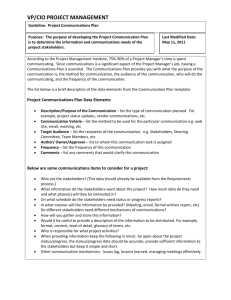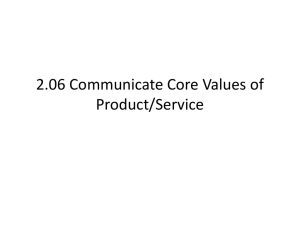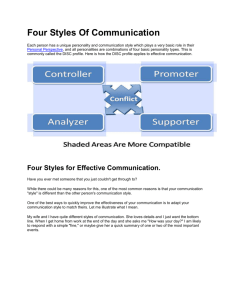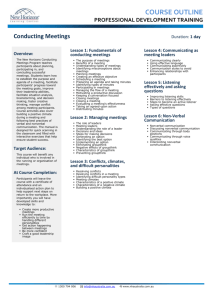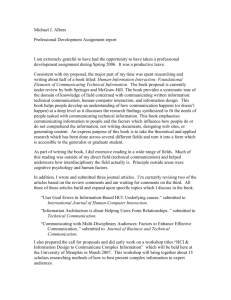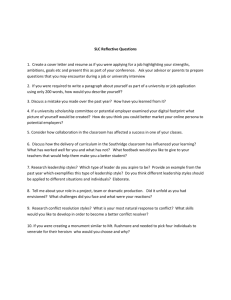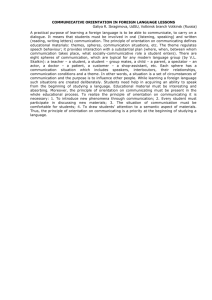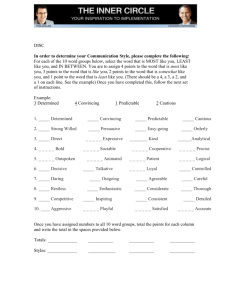New Horizons Courseware Outlines
advertisement
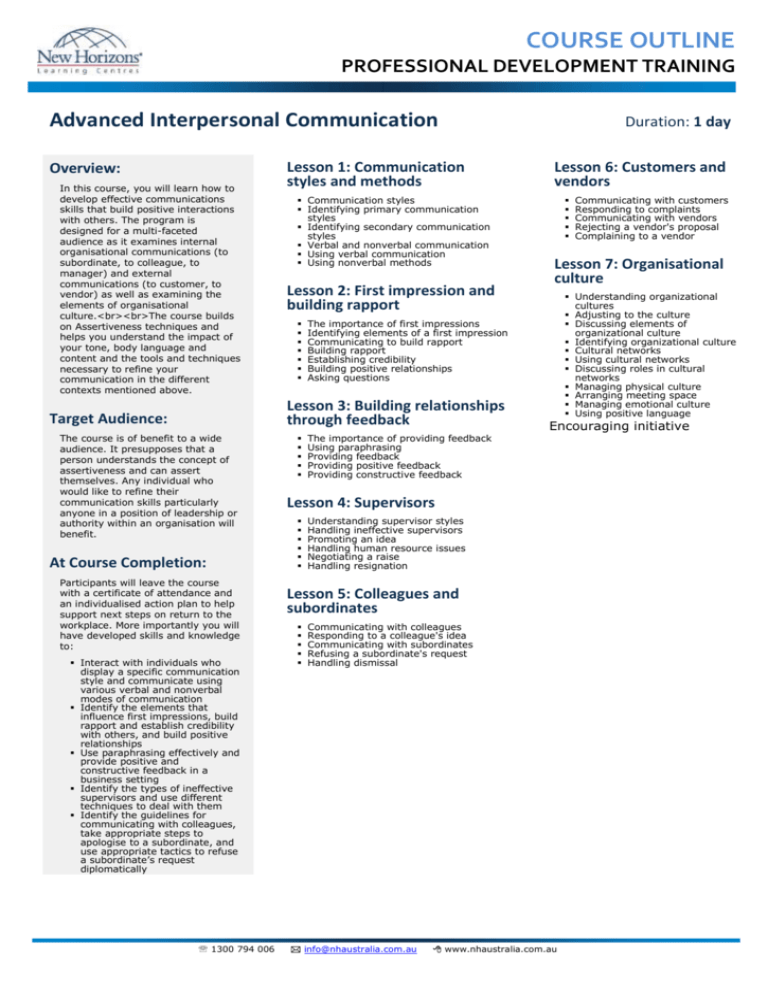
COURSE OUTLINE PROFESSIONAL DEVELOPMENT TRAINING Advanced Interpersonal Communication Overview: In this course, you will learn how to develop effective communications skills that build positive interactions with others. The program is designed for a multi-faceted audience as it examines internal organisational communications (to subordinate, to colleague, to manager) and external communications (to customer, to vendor) as well as examining the elements of organisational culture.<br><br>The course builds on Assertiveness techniques and helps you understand the impact of your tone, body language and content and the tools and techniques necessary to refine your communication in the different contexts mentioned above. Lesson 1: Communication styles and methods Communication styles Identifying primary communication styles Identifying secondary communication styles Verbal and nonverbal communication Using verbal communication Using nonverbal methods Lesson 2: First impression and building rapport The course is of benefit to a wide audience. It presupposes that a person understands the concept of assertiveness and can assert themselves. Any individual who would like to refine their communication skills particularly anyone in a position of leadership or authority within an organisation will benefit. At Course Completion: Participants will leave the course with a certificate of attendance and an individualised action plan to help support next steps on return to the workplace. More importantly you will have developed skills and knowledge to: Interact with individuals who display a specific communication style and communicate using various verbal and nonverbal modes of communication Identify the elements that influence first impressions, build rapport and establish credibility with others, and build positive relationships Use paraphrasing effectively and provide positive and constructive feedback in a business setting Identify the types of ineffective supervisors and use different techniques to deal with them Identify the guidelines for communicating with colleagues, take appropriate steps to apologise to a subordinate, and use appropriate tactics to refuse a subordinate’s request diplomatically 1300 794 006 Lesson 6: Customers and vendors Understanding supervisor styles Handling ineffective supervisors Promoting an idea Handling human resource issues Negotiating a raise Handling resignation Lesson 5: Colleagues and subordinates Communicating with colleagues Responding to a colleague's idea Communicating with subordinates Refusing a subordinate's request Handling dismissal info@nhaustralia.com.au Understanding organizational cultures Adjusting to the culture Discussing elements of organizational culture Identifying organizational culture Cultural networks Using cultural networks Discussing roles in cultural networks Managing physical culture Arranging meeting space Managing emotional culture Using positive language Encouraging initiative The importance of providing feedback Using paraphrasing Providing feedback Providing positive feedback Providing constructive feedback Lesson 4: Supervisors Communicating with customers Responding to complaints Communicating with vendors Rejecting a vendor's proposal Complaining to a vendor Lesson 7: Organisational culture The importance of first impressions Identifying elements of a first impression Communicating to build rapport Building rapport Establishing credibility Building positive relationships Asking questions Lesson 3: Building relationships through feedback Target Audience: Duration: 1 day www.nhaustralia.com.au
